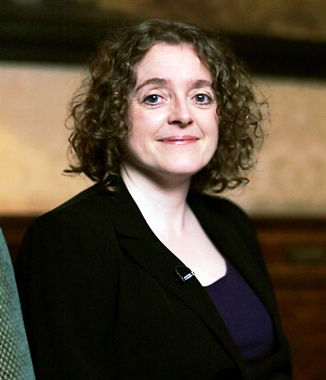Harry Potter charity chief on top of the world
Date published: 19 November 2014

Georgette Mulheir - international honour
THE Oldham-born and educated chief of J K Rowling’s children’s charity has been named one of the world’s 30 most influential social workers — and is the only European on the list.
Georgette Mulheir (46), CEO of Lumos since 2011, has worked for decades with some of the world’s most vulnerable children and has been recognised on an international list of the 30 most influential social workers alive today.
Lumos is an international organisation set up by the Harry Potter author to help countries to transform education, health and social care systems.
American academic website Social Work Degree Guide described Georgette as a “pioneer for the movement to end child abuse imposed by orphanages”.
It added that she has “dedicated the last 20 years working to shift resources away from orphanages and toward family services”.
The list — in which Georgette appears at number 22 — uses “social work” in a broad international sense - Georgette isn’t a registered UK social worker.
She said: “It is really great news that our workis viewed as an important social work issue internationally.”
Georgette went to the now demolished St Anselm’s School in Werneth, before studying music at the University of Sheffield in 1987.
She stayed there in 1991 to work in social services. She then went to Romania, the scene of some of the worst excesses in orphanages, to help set up a mother-and-baby unit.
Georgette has since worked in 23 countries across Europe and Africa and pioneered a model for returning vulnerable children to families with support from a range of community-based services.
Under Georgette’s leadership, Lumos is now a key member of the Global Alliance for Children, an international grouping of governmental agencies, including the World Bank and US Government departments, private European and US foundations and NGOs, which is dedicated, among other things, to ending institutionalisation.
“Children have a right to a family life. If countries spent the money wasted on institutions and so-called orphanages on health, social and education services in the community, eight million children could return where they belong – in the family.”
Most Viewed News Stories
- 1Head confident that Saddleworth School is still 'heading in the right direction' despite 'Requires...
- 2Two Oldham students study at both Oxford AND Cambridge
- 3Saddleworth will steam to success again this year
- 4No trams to run between Oldham and Rochdale on Sunday
- 5Taxi rank to close as ‘major works’ take place in Oldham town centre




